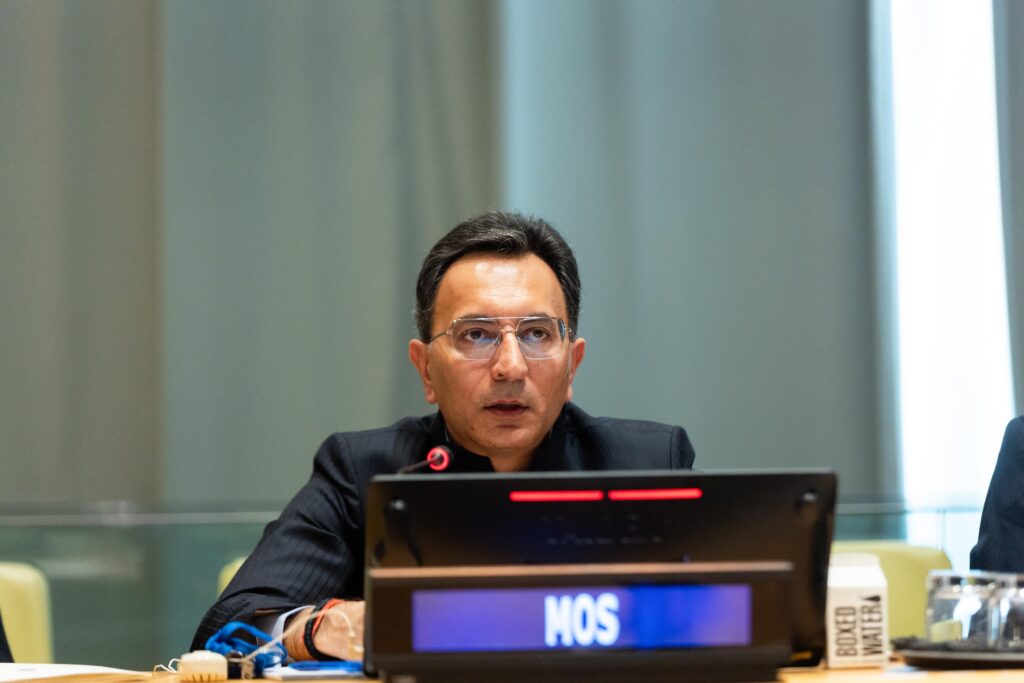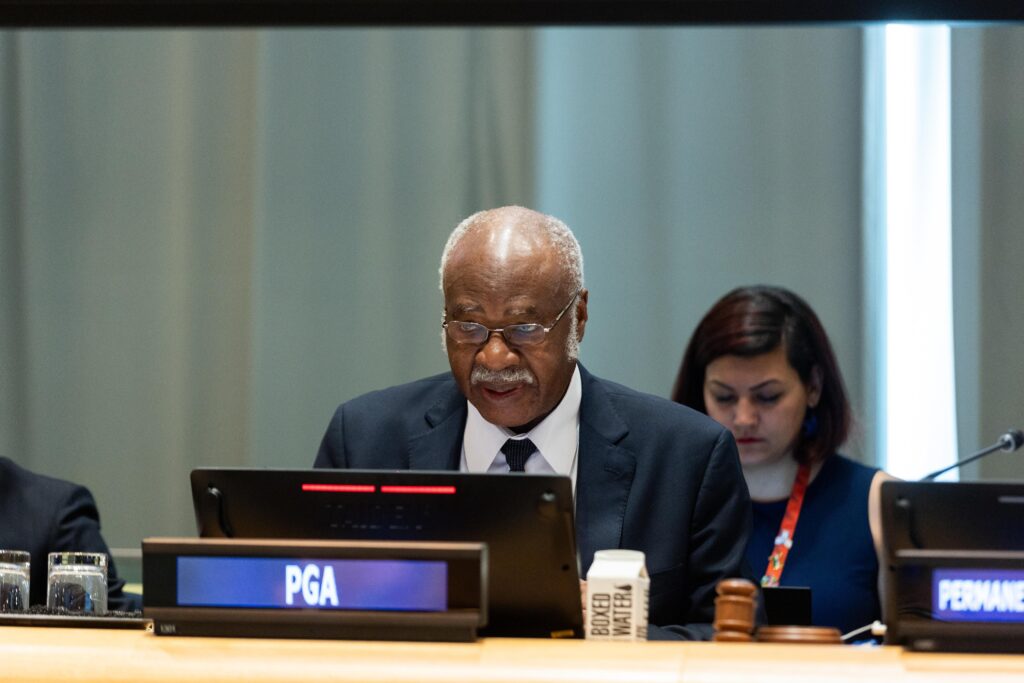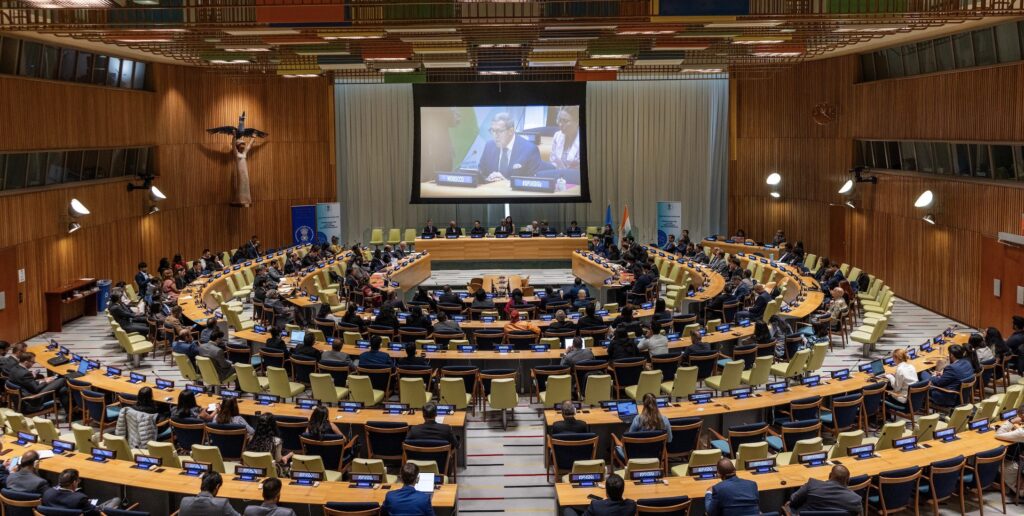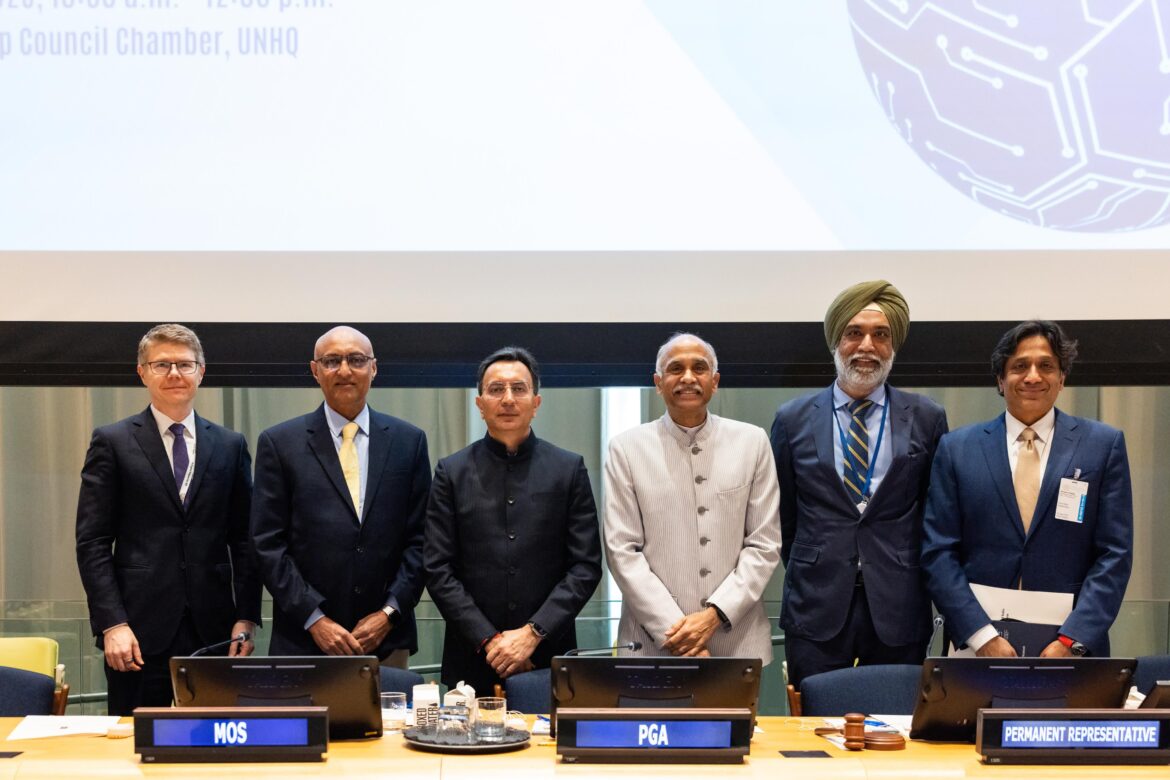India’s Minister of State for Electronics and Information Technology and Commerce and Industry, Jitin Prasada, expressed his gratitude to member states of the United Nations for standing in solidarity with India during its time of grief, following the terrorist attack in Pahalgam, Jammu and Kashmir, which claimed the lives of 26 tourists and injured over 20 others on April 22, 2025.
“Let us take a moment to remember the victims and unequivocally condemn this dastardly and unconscionable act of violence by terrorists who target innocent lives. As a nation, we are grieving this great loss, and I thank member states of the United Nations for expressing their solidarity with India in this hour of grief,” he said.

Minister Prasada was the keynote speaker at a special event titled “Empowering the Digital Citizen of the Future: Towards an Integrated Digital Public Infrastructure (DPI),” hosted by the Permanent Mission of India (PMI) to the United Nations on April 24, 2025, at UN Headquarters in New York.
Emphasizing the event’s importance for both India and the global community, Prasada noted that under the visionary leadership of Prime Minister Narendra Modi, the Digital India initiative was launched in 2014, to transform the country into a digitally empowered society and knowledge economy.
“Digital India paved the way for development and deployment of Digital Public Infrastructure in India. Indian DPI success story is a showcase to the world. DPI is all about empowering of citizens, good governance, inclusive and sustainable growth at the societal level,” he added.
He further highlighted that DPI “scales, it serves, it saves,” emphasizing that it is not infrastructure for a few, but an architecture for many, a global public good that is gaining international recognition. He pointed out that over 18 countries are either exploring or adopting India’s DPI model, from Singapore integrating UPI to Sierra Leone piloting digital ID initiatives. DPI’s elevation to a global agenda was a major highlight at the G20 New Delhi Leaders’ Summit, he said.

Minister Prasada showcased India’s population-scale digital platforms such as Aadhaar, UPI, Jan Dhan Yojana, DigiLocker, CoWIN, ABHA, and ONDC.
“These are not case studies. These are daily realities. We didn’t build DPI as an exception. We built it as a blueprint for India and for the world,” he said. “Open Source, Interoperable, Citizens First, DPI is India’s gift to the world.”
Looking ahead, he mentioned India’s efforts to expand DPI across sectors including agriculture, logistics, and smart cities.
President of the UN General Assembly, Philemon Yang, who was the Chief Guest, conveyed his condolences to the families affected by the Pahalgam attack. “The targeting of civilians is unacceptable and cannot be justified under any circumstances,” he said.
In his address, Yang commended India for its successful digital transformation and leadership in digital infrastructure investments.
“Indeed, digital public infrastructure holds the key to inclusion in the global digital society and these technologies are evolving at breakneck speed,” he added. “From the inception of the Internet to advances in artificial intelligence and quantum computing, digital technologies are impacting every aspect of human life.”

He further emphasized that digital technologies are revolutionizing economies, reducing costs, opening new doors to education and healthcare, and empowering citizens globally.
India’s Permanent Representative to the United Nations, Ambassador Parvathaneni Harish, also expressed gratitude to India’s friends and partners for their solidarity and strong condemnation of terrorism.
“The human and the world must quickly condemn such terrorism perpetrated against civilians and tourists for which they can be no justification,” he said.
He noted that in recent decades, governments worldwide have adapted to new responsibilities as digital service providers. “Until two years ago, Digital Public Infrastructure as a term did not appear in any headline. It was during India’s G20 presidency in 2023 that a DPI framework was crafted and accepted by G20 member states,” Ambassador Harish said.
He also referenced the United Nations’ launch of a high-impact initiative on DPI in September 2023, aiming to deploy DPI in 100 countries by 2030 to tackle critical development challenges.

Ambassador Harish outlined how India has utilized DPI to address structural issues and emphasized the growing role of AI in extending DPI’s reach across fields such as education, agriculture, tax administration, and digital lending.
UN Secretary-General’s Envoy on Technology, Amandeep Singh Gill, condemned the terror attack as well. He praised DPI’s role in enabling more inclusive digital transformation and emphasized that India’s model, along with examples from Brazil, Southeast Asia, and Africa, offers strong evidence of DPI’s transformative power.
“We now have enough evidence that DPI is work. They work at scale, and they work in a deeply transformative manner,” he said.
The event also featured a presentation by Founding CTO of Aadhaar and CEO of Khosla Labs, Srikanth Nadhamuni, who highlighted how India is leveraging AI to enhance the impact of its DPI. Nadhamuni noted that India’s inclusive approach to AI and DPI, developed as global digital public goods, can serve as a transformative model for countries worldwide.
Other distinguished speakers included Chief Digital Officer of UNDP, Robert Opp; Professor Arun Sundararajan of New York University; Ambassador and Permanent Representative of Morocco to the UN, Omar Hilale; and Ambassador and Deputy Permanent Representative of Brazil to the UN, Norberto Moretti.






